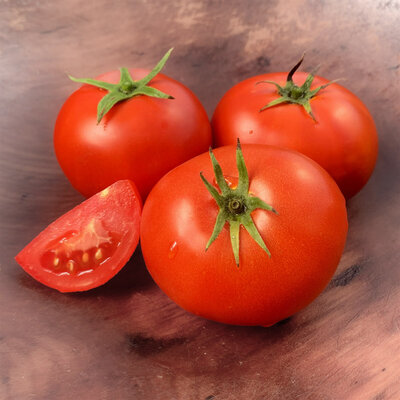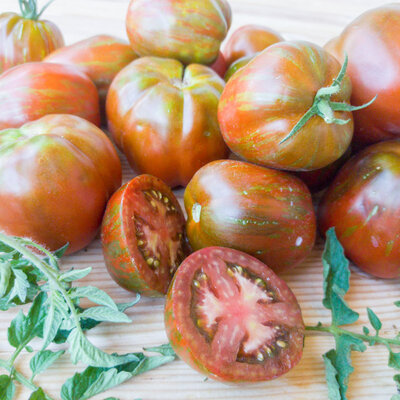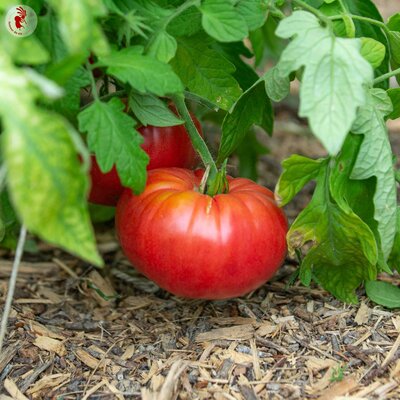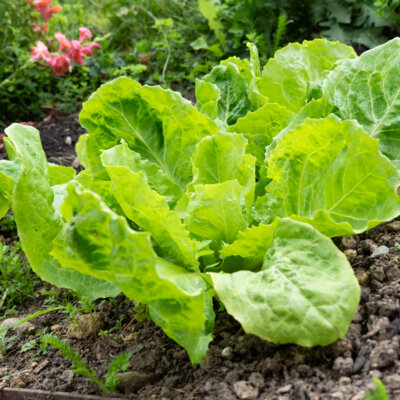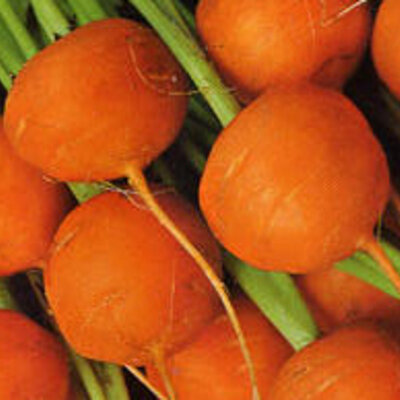
Paris Market - Orange Carrot
This ancient variety produces small, round roots with sparse foliage. Their orange flesh offers a tender texture and sweet flavor.
Characteristics of the Paris Round Carrot
The Paris Market Round Carrot, Daucus carota, is an early variety of root vegetable native to France. Already listed in the 19th century, it was introduced in Vilmorin-Andrieux's Les Plantes Potagères in 1890 as a "very short red carrot with frame". Its orange, round roots, 8 to 10 cm in diameter, are renowned for their tender, deliciously sweet flesh.
Growing the Paris Market Round Carrot
This Paris Market carrot can be sown directly in the ground, from February to July. Choose a sunny spot for planting, and favor rich, well-drained soil that stays cool. Because of its small size, this round carrot can also be grown in pots.
- Sow carrot seeds in the vegetable garden, in rows 25 cm apart. Cover with a thin layer of soil and plumb lightly. Emergence takes place 6 to 21 days after sowing, at temperatures between 10 and 24°C. Keep the soil moist until the carrot seeds have germinated;
- When plants have 3 leaves, thin to 5 cm, then a few weeks later, to 8 cm. Protect young shoots from slugs if possible;
- Water regularly in the month following sowing to encourage good root development;
- Mulch the soil to keep the carrots cool.
Be careful during the first three weeks of root development: compressed soil and the presence of stones may deform the carrot as it matures.
To help carrots develop properly, consider planting companion plants close to the crop: onion, tomato, lettuce, radish, cabbage, etc.
Harvesting the Paris Market Round Carrot
This variety of carrot is harvested from June to the first frosts, 60 to 80 days after sowing. If the plants are protected by mulch or if there is no frost, they can be harvested all year round, right up to flowering in spring.
To store, let the carrots dry for a few days before cutting off the tops a few centimetres above the collar, then wipe dry and store in a sheltered place such as a gauge, silo or cellar. They can also be stored in the ground in the vegetable garden. Cover them with a good layer of straw or leaves, at least 20 to 25 cm high, to protect them from frost. Carrots also keep well grated and lacto-fermented.
The benefits of carrots
In the 13th century, carrots were considered primarily as a spice, especially for their leaves and seeds. The fruit was mainly used as feed for cattle and horses. It wasn't until the early 20th century that carotene and its benefits were discovered.
While the Paris Market carrot's originality lies in its round shape and small size, it is also appreciated for its nutritional qualities. Rich in fiber, vitamins and minerals, its concentrated beta-carotene gives it powerful antioxidant properties. Like the Dolciva (improved Nantaise) or Chantenay red-heart carrots, this variety slows aging, regulates intestinal transit and helps prevent certain cancers.
Rich in vitamins A, B, C and E, as well as beta-carotene, this root vegetable promotes healing and regeneration, and helps regulate intestinal transit. In the kitchen, carrots can be eaten raw, grated into salads, or steamed, pan-fried, roasted or simmered. As carrots are 90% water, they can also be made into juices and syrups.
These products may also be of interest to you
in the ground
Sow in rows 25 cm apart. Pack lightly. Thin to 5 cm, then to 10 cm when plants are 10 cm tall. If possible, protect young shoots from slugs. Sow in February and March in tunnels or trays, staggering sowing every 2 to 3 weeks to spread out the harvest.
Water regularly, but lightly, to encourage emergence, then more abundantly once a week the month after sowing to prevent the roots from "digging in". Carrots can be harvested all year round if the soil does not freeze or if it is protected by mulch.
February, March, October, November
March, April, May, June, July
April, May, June, July, August, September, October, November
in the ground, in the greenhouse
sunny, semi-shade
medium
all floor types
drained, furniture, rich
Daucus carota
early
From 50 to 100 g
4 grams
round
tender
Orange, Red
From 8 to 10 cm
France
1890
"Vilmorin-Andrieux "Les Plantes Potagères
This very old variety, already listed in the 19th century, was presented in Vilmorin-Andrieux's book "Les Plantes Potagères", in 1890, under the name "Carotte rouge à forcer parisienne".



